-
 Bitcoin
Bitcoin $120300
1.24% -
 Ethereum
Ethereum $4311
2.06% -
 XRP
XRP $3.197
0.16% -
 Tether USDt
Tether USDt $1.000
0.01% -
 BNB
BNB $805.1
0.34% -
 Solana
Solana $179.6
-1.14% -
 USDC
USDC $0.9998
0.00% -
 Dogecoin
Dogecoin $0.2303
-1.21% -
 TRON
TRON $0.3442
1.08% -
 Cardano
Cardano $0.7938
-1.23% -
 Hyperliquid
Hyperliquid $44.55
-0.69% -
 Chainlink
Chainlink $21.81
-2.59% -
 Stellar
Stellar $0.4436
0.05% -
 Sui
Sui $3.728
-3.42% -
 Bitcoin Cash
Bitcoin Cash $586.5
2.00% -
 Hedera
Hedera $0.2530
-2.62% -
 Ethena USDe
Ethena USDe $1.001
-0.02% -
 Avalanche
Avalanche $23.65
-1.46% -
 Litecoin
Litecoin $124.5
-0.71% -
 Toncoin
Toncoin $3.384
1.63% -
 UNUS SED LEO
UNUS SED LEO $9.001
-0.44% -
 Shiba Inu
Shiba Inu $0.00001321
-2.42% -
 Uniswap
Uniswap $10.87
-2.31% -
 Polkadot
Polkadot $3.956
-2.80% -
 Cronos
Cronos $0.1681
4.79% -
 Dai
Dai $1.000
-0.01% -
 Ethena
Ethena $0.8090
1.30% -
 Bitget Token
Bitget Token $4.425
-0.55% -
 Monero
Monero $272.6
3.08% -
 Pepe
Pepe $0.00001169
-2.54%
How to build your own contract trading system?
To establish a successful contract trading system, a meticulous approach encompassing market data analysis, technical indicator development, and risk-averse decision-making is essential.
Feb 22, 2025 at 04:42 am
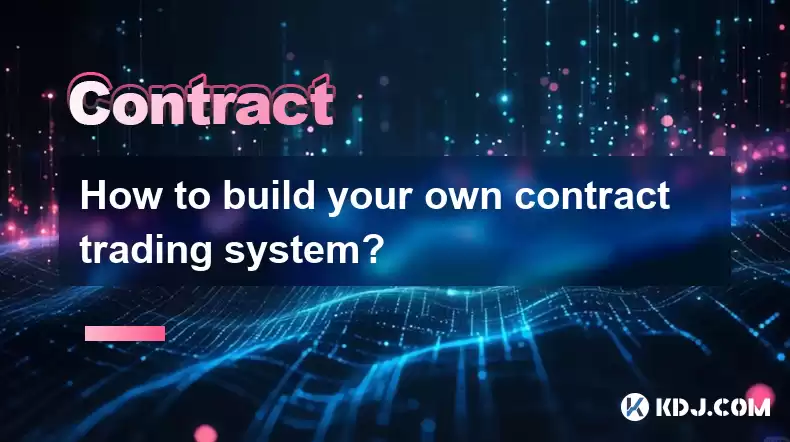
Key Points:
- Understand the core concepts of contract trading, including spot, futures, and perpetual contracts.
- Choose a reputable cryptocurrency exchange that supports contract trading and offers the features you need.
- Determine your trading strategy and risk appetite, as these factors will influence system development.
- Identify and collect relevant market data for analysis and decision-making.
- Develop technical indicators, trading signals, and automated execution algorithms.
- Conduct thorough backtesting and simulation to refine and optimize the system.
- Implement the system in a live trading environment and monitor its performance.
Building Your Contract Trading System Step-by-Step:
1. Understand Contract Trading Fundamentals:
- Spot contracts: Immediate settlement of assets at the current market price.
- Futures contracts: Standardized agreements to buy or sell an asset at a predetermined price in the future.
- Perpetual contracts: Futures contracts without an expiry date, providing ongoing exposure to asset price movements.
2. Selecting a Suitable Cryptocurrency Exchange:
- Consider factors such as trading volume, supported contract types, fees, and security measures.
- Research and compare multiple exchanges before making a decision.
- Select an exchange that aligns with your trading preferences and compliance requirements.
3. Define Your Trading Strategy:
- Identify your goals and objectives (e.g., profit maximization, risk management).
- Choose a trading strategy that aligns with your risk appetite and time horizon (e.g., scalping, swing trading, hedging).
- Develop a trading plan that outlines your entry and exit points, position sizing, and risk management techniques.
4. Collect and Analyze Market Data:
- Gather historical and real-time data from various sources (e.g., market feeds, news aggregators).
- Use technical analysis techniques to identify trends, patterns, and market sentiment.
- Employ fundamental analysis to understand economic and industry factors that may impact asset prices.
5. Develop Technical Indicators and Trading Signals:
- Create custom or use existing technical indicators to identify potential trading opportunities.
- These indicators can include moving averages, MACD, Bollinger Bands, and RSI.
- Design trading signals based on the indicators and your trading strategy to trigger automated execution.
6. Backtesting and Simulation:
- Test your system's performance using historical data to identify strengths, weaknesses, and areas for improvement.
- Run simulations to optimize parameters, adjust risk management components, and enhance system robustness.
- Fine-tune the system based on backtesting results to maximize profitability and minimize losses.
7. Live Trading Execution:
- Implement the system in a live trading environment and monitor its performance closely.
- Use automated execution algorithms to execute trades based on pre-defined signals.
- Track and evaluate system profitability, risk metrics, and overall performance.
FAQs Related to Contract Trading System:
1. What are the benefits of contract trading?
- Increased earning potential through leverage and market exposure
- Ability to hedge against market fluctuations or speculate on price movements
- Diversification and additional revenue streams for crypto asset holders
2. What are the risks involved in contract trading?
- High leverage can magnify both profits and losses
- Liquidation risk if margin falls below maintenance levels
- Volatility and market manipulation can lead to unexpected losses
3. How do I get started with contract trading?
- Research and choose a reliable cryptocurrency exchange
- Understand the different contract types and trading mechanisms
- Develop a trading strategy and risk management plan
- Backtest and optimize your trading system before live implementation
4. What are the best platforms for building a contract trading system?
- TradingView
- Pine Script
- Cryptohopper
- Shrimpy
- 3Commas
Disclaimer:info@kdj.com
The information provided is not trading advice. kdj.com does not assume any responsibility for any investments made based on the information provided in this article. Cryptocurrencies are highly volatile and it is highly recommended that you invest with caution after thorough research!
If you believe that the content used on this website infringes your copyright, please contact us immediately (info@kdj.com) and we will delete it promptly.
- Token Security, Agentic AI, Cybersecurity Guide: Navigating the New Frontier
- 2025-08-11 23:00:12
- Crypto Investments: Riding the Meme Wave with Layer Brett and Dogecoin
- 2025-08-11 23:00:12
- Nexchain, Crypto Presales, and Bitcoin Volumes: What's the Buzz?
- 2025-08-11 23:10:13
- Ethereum Treasury, Bitcoin, and Michael Saylor: A NYC Take on the Crypto Landscape
- 2025-08-11 23:10:13
- Pumpfun vs. Pepe Dollar: The Meme Coin Arena Heats Up
- 2025-08-11 23:10:14
- Altcoins Primed for a Bull Run: Investment Gains in the Making
- 2025-08-11 23:10:14
Related knowledge
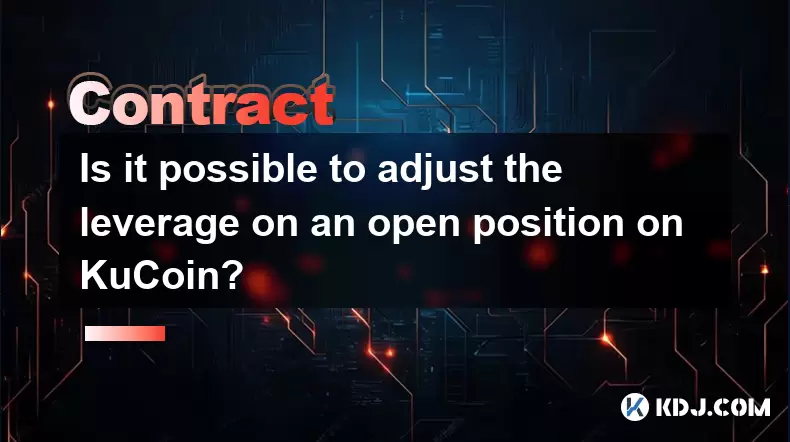
Is it possible to adjust the leverage on an open position on KuCoin?
Aug 09,2025 at 08:21pm
Understanding Leverage in KuCoin Futures TradingLeverage in KuCoin Futures allows traders to amplify their exposure to price movements by borrowing fu...

What cryptocurrencies are supported as collateral on KuCoin Futures?
Aug 11,2025 at 04:21am
Overview of KuCoin Futures and Collateral MechanismKuCoin Futures is a derivatives trading platform that allows users to trade perpetual and delivery ...
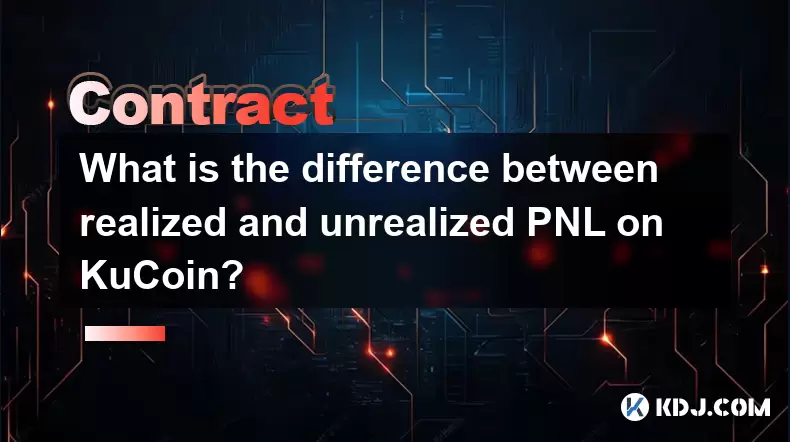
What is the difference between realized and unrealized PNL on KuCoin?
Aug 09,2025 at 01:49am
Understanding Realized and Unrealized PNL on KuCoinWhen trading on KuCoin, especially in futures and perpetual contracts, understanding the distinctio...

How does KuCoin Futures compare against Binance Futures in terms of features?
Aug 09,2025 at 03:22am
Trading Interface and User ExperienceThe trading interface is a critical component when comparing KuCoin Futures and Binance Futures, as it directly i...
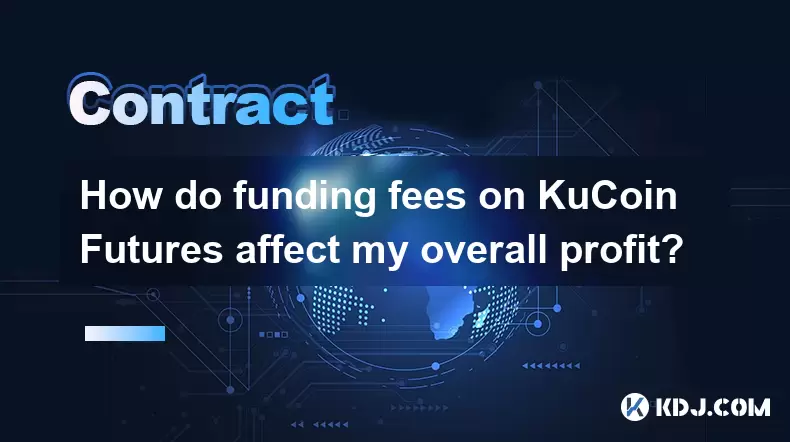
How do funding fees on KuCoin Futures affect my overall profit?
Aug 09,2025 at 08:22am
Understanding Funding Fees on KuCoin FuturesFunding fees on KuCoin Futures are periodic payments exchanged between long and short position holders to ...
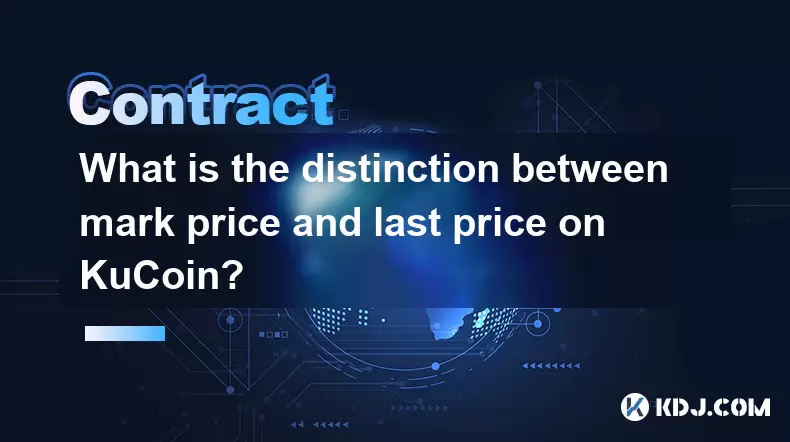
What is the distinction between mark price and last price on KuCoin?
Aug 08,2025 at 01:58pm
Understanding the Basics of Price in Cryptocurrency TradingIn cryptocurrency exchanges like KuCoin, two key price indicators frequently appear on trad...

Is it possible to adjust the leverage on an open position on KuCoin?
Aug 09,2025 at 08:21pm
Understanding Leverage in KuCoin Futures TradingLeverage in KuCoin Futures allows traders to amplify their exposure to price movements by borrowing fu...

What cryptocurrencies are supported as collateral on KuCoin Futures?
Aug 11,2025 at 04:21am
Overview of KuCoin Futures and Collateral MechanismKuCoin Futures is a derivatives trading platform that allows users to trade perpetual and delivery ...

What is the difference between realized and unrealized PNL on KuCoin?
Aug 09,2025 at 01:49am
Understanding Realized and Unrealized PNL on KuCoinWhen trading on KuCoin, especially in futures and perpetual contracts, understanding the distinctio...

How does KuCoin Futures compare against Binance Futures in terms of features?
Aug 09,2025 at 03:22am
Trading Interface and User ExperienceThe trading interface is a critical component when comparing KuCoin Futures and Binance Futures, as it directly i...

How do funding fees on KuCoin Futures affect my overall profit?
Aug 09,2025 at 08:22am
Understanding Funding Fees on KuCoin FuturesFunding fees on KuCoin Futures are periodic payments exchanged between long and short position holders to ...

What is the distinction between mark price and last price on KuCoin?
Aug 08,2025 at 01:58pm
Understanding the Basics of Price in Cryptocurrency TradingIn cryptocurrency exchanges like KuCoin, two key price indicators frequently appear on trad...
See all articles

























































































